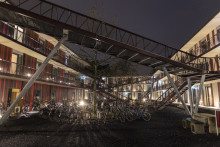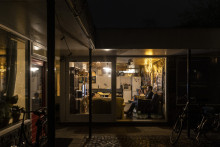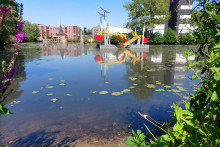Since the coronavirus outbreak, many exams have been administered online. Students are in the comfort of their own homes, instead of in a large exam room monitored by invigilators to prevent cheating.
In their efforts to combat academic misconduct, many institutions of higher education are relying on online invigilation. Students are required to turn on the camera on their laptops and have their internet traffic monitored. They sometimes also have to turn on the camera on their phones.
Invigilation
The LSVb published a warning against privacy violations due to online surveillance today. One example was that journalists in Groningen had direct access to exams as they were being taken. The situation also comes with many technical issues. At Erasmus University, 102 exams were declared invalid due to malfunctioning software, but this decision was later rescinded.
The union believes that online proctoring causes a lot of stress among students. Besides, there are better alternatives available: ‘From open-book exams and essays, to on-campus exams that require students show the results from a rapid corona test.’
The LSVb states that if institutions continue to use proctoring, they will be ‘showing a lack of care for their students’.
Websites
The union has scoured the websites of 21 institutions for information about online exams. They discovered that only six do not use online proctoring. When asked, the LSVb names the University of Groningen, Windesheim University of Applied Sciences and Leiden University of Applied Sciences as examples.
The University of Groningen has experimented with the practice, but abandoned proctoring due to a range of limitations. Sometimes teachers call some of their students to check whether they did indeed take their exams themselves.
Windesheim has refrained from the practice so far but is considering the options. Leiden and Avans were among the first universities of applied sciences to decide not to use online proctoring.







